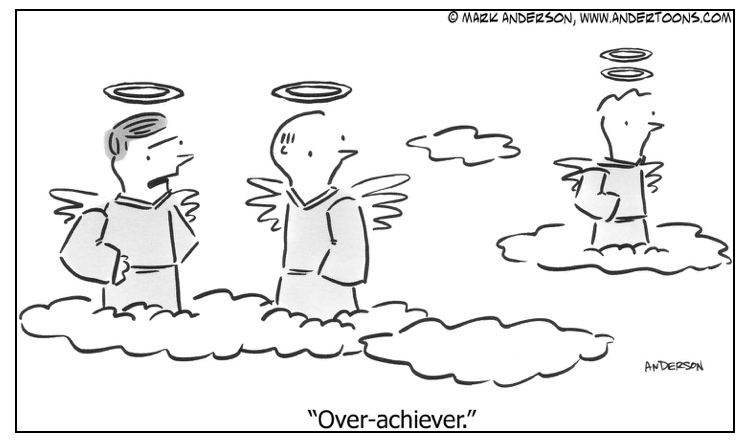
“One can’t lead unless he can leverage more than his own capabilities.” Scully
There is a significant difference between an achiever and a leader.
-
-
- An achiever gets the job done.
- A leader gets the job done through other people.
-
This is huge; don’t miss it.
Many people have honed their “get it done” skills; they live disciplined lives and accomplish immense amounts of work. They are achievers. Give them a job and they’ll get it done. I admire these people, but I don’t consider them leaders, because leaders accomplish work through others.
Peter Drucker illustrates this difference by challenging us to think of which pronouns we use when given work to do: “The leaders who work most effectively, it seems to me, never say ‘I.’ And that’s not because they have trained themselves not to say ‘I.’ They don’t think ‘I.’ They think ‘we’; they think ‘team.’ They understand their job to be to make the team function.”
When you are given an assignment or when you have a vision to fulfill, what is your first thought? “I can do that.” Or, “I need to put a team together.” As Drucker says, leaders think first of accomplishing work through their team. Leaders use plural pronouns when planning work.
No doubt, a good leader must also be an achiever—you must possess the skills necessary to accomplish tasks. When a leader doesn’t know how to get work done, he loses credibility with his team and progress suffers because he doesn’t understand how work is accomplished. So for a leader it’s not “I’m either an achiever or a leader” but “I am both an achiever and a leader.”
There’s even a difference between a leader and an achiever with helpers. Some high achievers will surround themselves with a group of assistants and helpers whose job is to help the achiever be more efficient, but this is still not the exercise of leadership. For instance, a dentist may have a staff that assists him in his work—a dental assistant, dental hygienist, receptionist, x-ray technician—but all the work centers around the dentist. A leader will empower others to conceptualize and perform work on their own.
The ability to get work done through other people is fundamental to leadership. In fact, if you’re not doing that, you’re not leading.
As you reflect on your past, have you functioned more as an achiever or a leader?

Relatedly, if the leader is overly focused on working “in” the business as an achiever, they are failing to work “on” the business which leads to loss of direction, missed opportunities and losing the ability to compete.
Howard, I like your distinction between working “in” the business and working “on” the business. Thanks for responding. Don
Excellent post! In my career, I moved from early individual contributor roles as a computer programmer to leading teams and organizations. Often I had to lead people to an objective where they had to use their technical skills which I did not posess myself (like a different computer language or accounting, etc). Casting a vision and building a positive, collaborative culture are critical success factors for effective leaders. This means thinking often about others first.
Paul, you must have been a good manager. You have the proper perspective. I love your last phrase about thinking of others and putting them first. In some ways, that’s one of the keys to living a good and productive life. Take care.